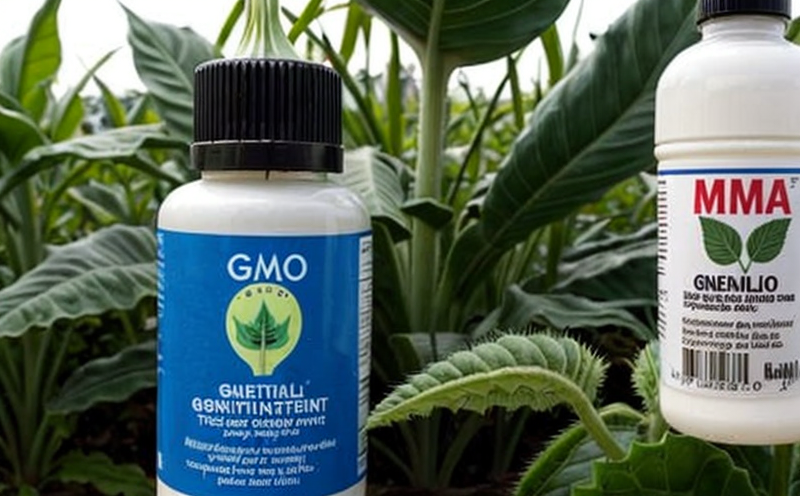ISO 46233 GMO Quantification in Spices and Herbs
The ISO standard ISO 46233 provides a robust methodology for the quantification of genetically modified organisms (GMOs) in spices and herbs. This service is crucial for ensuring compliance with global regulations related to GMO labeling, which helps protect consumers from inadvertently consuming products containing unintended GMO content.
The growing demand for organic and non-GMO products has made accurate detection and quantification of GMOs more important than ever. ISO 46233 offers a standardized approach that is reliable, reproducible, and widely accepted across industries. This service ensures that your spices and herbs are free from unintended GMO contamination or can be accurately labeled as non-GMO.
The process begins with the collection of samples which should represent the full range of spices and herbs being tested. Samples must be handled carefully to avoid contamination by other sources. Preparing these samples involves a series of steps, including grinding and homogenization, which ensures that all parts of the sample are evenly distributed for analysis.
The test itself uses advanced molecular techniques such as quantitative real-time polymerase chain reaction (qPCR). This technique allows for precise quantification by comparing the target DNA sequences against known standards. The qPCR process involves multiple steps: extraction of DNA, amplification via PCR, and detection through fluorescence. Each step must be meticulously controlled to ensure accuracy.
The acceptance criteria for this service are stringent and align closely with ISO 46233 guidelines. Samples that fail the test need further investigation, which might involve repeat testing or re-sampling. Compliance officers will find this level of detail invaluable as it ensures robust quality control throughout their supply chain.
For R&D engineers, understanding the nuances of GMO quantification is critical for developing and optimizing new products. By leveraging ISO 46233 standards, they can ensure that their innovations meet stringent regulatory requirements while maintaining consumer trust.
In the procurement process, suppliers must demonstrate adherence to these standards if they wish to sell their products globally. This service not only helps manufacturers comply with regulations but also enhances their reputation by assuring customers of product integrity and safety.
Why It Matters
The importance of GMO quantification in spices and herbs cannot be overstated, especially given the increasing consumer demand for transparency regarding ingredient origins. Compliance with international standards like ISO 46233 is essential not only to avoid legal penalties but also to build trust among consumers.
Regulatory compliance: Many countries have strict labeling laws requiring companies to declare the presence of GMOs in their products.
Consumer confidence: Consumers are more likely to purchase from brands that can verify the absence or minimal presence of unintended GMO content.
Market access: Meeting these standards opens up markets where compliance is mandatory, such as certain EU countries and other regions.
Risk management: Early detection of potential issues allows for corrective actions before they escalate into larger problems.
In essence, GMO quantification using ISO 46233 ensures that your products are safe, compliant, and trusted by consumers worldwide.
Competitive Advantage and Market Impact
By offering ISO 46233 GMO quantification services for spices and herbs, laboratories can significantly enhance their competitive positioning in the global market. Compliance with these standards sets a benchmark of quality and reliability that is increasingly valued by consumers.
Increase customer loyalty: Brand reputation improves when customers know they are getting products that meet high safety and quality standards.
Expand market opportunities: Meeting international standards allows companies to penetrate new markets where strict labeling laws apply.
Better resource management: Early identification of potential issues helps in efficient allocation of resources for corrective actions.
Moreover, this service supports the development of innovative products that meet both regulatory and consumer expectations. This dual approach not only ensures compliance but also enhances product quality, leading to increased market share and profitability.
Frequently Asked Questions
Use Cases and Application Examples
In the food industry, especially for exporters targeting EU markets, GMO quantification is paramount. For instance, a spice manufacturer supplying to the European Union may need to ensure that their products meet stringent labeling laws regarding GMO content.
A coffee producer might use this service to verify the absence of unintended GMOs in their raw materials before processing them into final products for export.
An herbal tea company could utilize these tests during its quality assurance checks to maintain product integrity and ensure consistency across batches.
A spice blend manufacturer would benefit from this quantification process to comply with regulatory requirements while also meeting consumer demand for non-GMO products.
These examples illustrate how ISO 46233 GMO quantification contributes to the overall safety, compliance, and integrity of spices and herbs in various applications within the food industry.





